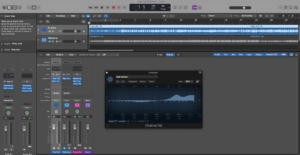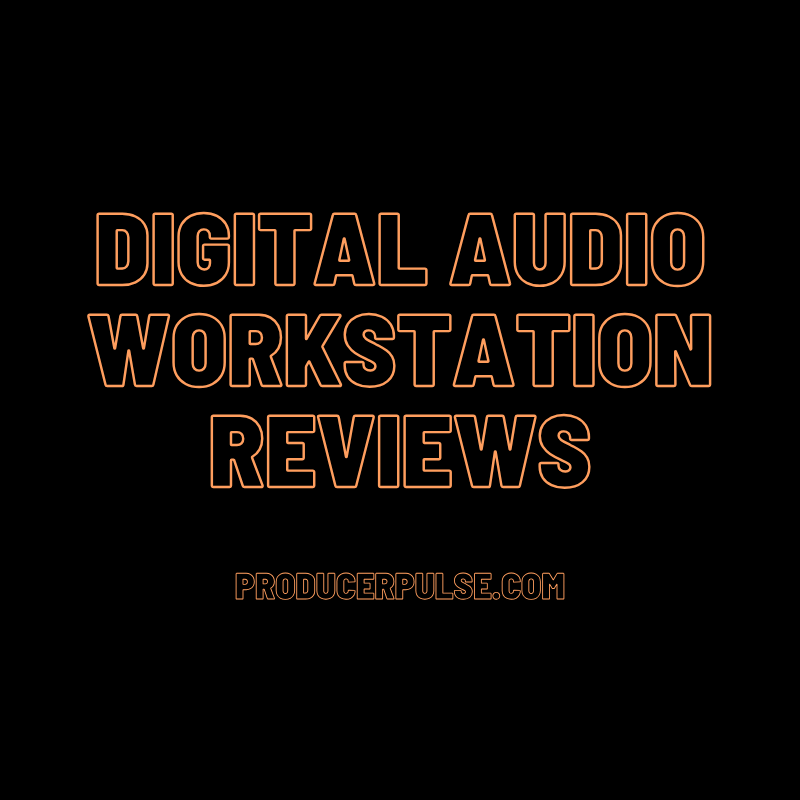Welcome to our take on digital audio workstation reviews, brought to you by producerpulse.com. Digital Audio Workstations, or DAWs, are software applications used for recording, editing, and producing audio files. They are the backbone of modern music production, making it possible for musicians and producers to create high-quality music from their bedrooms or professional studios. DAWs have revolutionized the music industry, turning anyone with a computer into a potential music producer.
applications used for recording, editing, and producing audio files. They are the backbone of modern music production, making it possible for musicians and producers to create high-quality music from their bedrooms or professional studios. DAWs have revolutionized the music industry, turning anyone with a computer into a potential music producer.
The journey of DAWs is quite fascinating. Initially, they were just basic recording tools, but over the years, they’ve evolved into complex software that can handle a multitude of tasks. This evolution reflects the rapid advancement in technology and the growing demand for more powerful and versatile music production tools. Today, DAWs come packed with features like MIDI support, virtual instruments, and an array of effects that make them indispensable in music production.
Why should you care about DAWs? Well, if you’re passionate about music creation, whether it’s producing a track, mixing samples, or even starting a podcast, DAWs are essential tools. They provide a platform where creativity has no limits. With the right DAW, you can push the boundaries of music production, experimenting with sounds and styles to bring your musical ideas to life. This is an important point that I feel gets left out with other digital audio workstation reviews.
In the world of music production today, DAWs have a significant role. They’re not just for professionals in big studios. Hobbyists and independent artists rely on them too. They’re democratizing music production, giving access to state-of-the-art tools that were previously available only to those with big budgets. Embracing a DAW is about exploring potential and letting your creativity flow, regardless of experience or budget.
Digital Audio Workstation Reviews: Top-Rated Digital Audio Workstations in the Market
Navigating the world of Digital Audio Workstations can feel like being a kid in a candy store with so many choices, each packed with unique flavors. Among the giants, you’ll find names like Pro Tools, Ableton Live, Logic Pro, FL Studio, and Cubase. Each of these DAWs holds a distinct place in the industry, catering to different tastes and needs of music producers out there.
Pro Tools is often hailed as the industry standard, known especially in professional recording studios for its powerful editing features and reliability. It’s like the classic Swiss Army knife for audio production, capable of crafting major hits and soundtracks alike.
Ableton Live brings a fresh and live-performance-friendly vibe to the DAW scene. It’s perfect for electronic music producers and live performers who want flexibility and spontaneity in their projects. Think of it like the ultimate stage partner, always ready for an improv session.
Then we’ve got Logic Pro, a favorite among Mac users. It’s like having a creative playground with its vast library of loops and instruments. Logic Pro combines user-friendliness with powerful features that help translate creative ideas into polished tracks with ease.
FL Studio, popularly known as Fruity Loops, is celebrated for its straightforward interface and legendary beat-making capabilities. It’s like the playful prodigy of DAWs, ideal for beginners and electronic music enthusiasts who want to dive straight into beat production with style.
Cubase stands as a robust and versatile choice, beloved for its MIDI functionalities and flexibility. Those particularly focused on extensive MIDI work find Cubase to be a reliable companion, providing room for detailed arrangements and complex projects.
When deciding on a DAW, it’s worth diving into real user experiences and ratings—this is where the community’s voice can guide you. Understanding the strengths and little quirks of each program can massively help in selecting the one that feels just right for your creative process.
Evaluating DAWs: What to Consider Before Choosing
Choosing the right Digital Audio Workstation might feel a bit like picking the perfect car. You want the right fit that matches your style and gets the job done smoothly. A DAW’s user interface is a big deal. If you’re spending hours on it, you want something that’s intuitive and doesn’t mess with your flow.
It’s also smart to think about how you like to work. Some DAWs are better suited for live performances, while others excel in studio production. The workflow of each can vary hugely, making it essential to pick one that aligns with how you operate creatively.
Plugins are like the secret spice in your music, making your beats pop and bringing depth to your tracks. Ensure the DAW you choose supports your go-to plugins or offers great built-in options. Also, check your computer’s compatibility. The last thing you want is technical issues holding you back when inspiration strikes.
Your budget will probably have a say in things too. Are you just starting out? Look for something that offers great value without emptying your pockets. Professionals may seek more expensive options with advanced features. It’s like comparing a budget sedan with a luxury model; both get you there, but the ride feels different.
Most DAWs offer trial versions. These are gift horses of the digital audio world, letting you test the waters before committing. Using a trial version can give you a feel for the community support and resources available, which are crucial for times when you hit a bump or want to learn new tricks.
Customer Experiences and Case Studies: Real Stories from DAW Users
Hearing from folks who are deep into using DAWs can give you eye-opening insights. For instance, a pro music producer might share how a DAW like Pro Tools became their mainstay, handling complex projects with ease and giving them the precision needed for top-tier sound mixing.
Take an amateur musician who caught the digital bug, maybe they started with a beginner-friendly DAW like FL Studio. Their story might highlight how accessible features allowed them to express creativity without feeling overwhelmed, gradually evolving from playful experimentation to serious production work.
There’s a collective theme among users who find the right DAW—creativity meets productivity. A sound engineer might point out how advanced tools in Logic Pro streamline their workflow, letting them focus more on innovation than fiddling with settings.
For many, DAWs have changed the game. Aspiring artists find these tools incredibly empowering, enabling them to get their music out there without needing a whole recording studio. Stories often touch on the liberation of being able to produce professional-sounding tracks independently.
The impact of DAWs on the music industry is profound. Just look at how these tools have leveled the playing field, opening doors for self-produced hits that rival those made in big-name studios. From independent artists to Grammy-winning producers, DAWs are the secret weapon that makes magic happen in the studio.
Digital Audio Workstation Reviews: The Future of DAWS (Trends and Innovations)
As technology marches forward, the evolution of Digital Audio Workstations is all set to be an exciting journey. In recent years, we’ve started seeing the influence of emerging tech like artificial intelligence with some DAWs beginning to integrate AI-powered features. These tools might help automate tedious tasks, making the creative process quicker and more efficient.
Machine learning is another biggie that’s expected to reshape audio production. Imagine a DAW that learns your style and anticipates your next move? It might sound futuristic, but some features already aim to predict edits or suggest improvements based on your workflow patterns.
The cloud is also making waves in how we approach music production. More DAWs offer cloud-based solutions, allowing projects to be stored, accessed, and collaborated on from virtually anywhere in the world. This trend is opening up new possibilities, especially for musicians who thrive on collaboration but can’t always be physically present.
Mobile DAWs are another innovation gaining traction. They’re perfect for those on the move, allowing you to jot down ideas or start new projects anywhere—be it a coffee shop or on a train. They’re not quite a full replacement for their desktop counterparts yet, but the gap is closing fast.
So, in the grand scheme of things, the future of DAWs looks dynamic and full of promise. These advancements suggest a more seamless and integrated approach to music production where technical barriers continue to melt away, leaving more room for creative exploration and collaboration.

